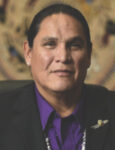
The issue of online gaming has split land-based casinos into separate camps. Whether Native American or commercial, the existing bricks-and-mortar casinos haven’t kept up with the pace of development of online gaming in other countries.
In Europe, where online gaming is legal and thriving, the existing casinos have felt a small impact. Ron Goudsmit, the president of the European Casino Association, has been quoted that revenues for his member casinos slipped 5 percent since the advent of legal online gaming across Europe. But the land-based casinos of Europe aren’t of the size and scope found in the United States, so a small revenue drop is hardly noticeable. In the U.S., it could be significant.
Commercial casinos that are members of the American Gaming Association had been opposed to online gaming since a position was first taken early in the first decade of the 21st century. But that changed in 2011, when the AGA shifted its position to support a bill that would have legalized online poker at the federal level. While not all members supported the bill, it was an option that most of the larger companies could at least tolerate, if not capitalize on.
But efforts in Congress to legalize online gaming have fallen short. In each of the last two sessions, online gaming bills either were not even introduced or simply ignored. Cursory hearings in the House did not clarify anything. Even after a letter from the Department of Justice released in late 2011 that offered a new opinion on the Wire Act (that the only online gambling strictly prohibited is sports betting), Congress was not motivated to act.
So, some states got into the game first. Delaware has legalized full-blown online gaming (minus sports betting) and Nevada approved online poker. New Jersey Governor Chris Christie recently approved a bill that legalizes online gaming in the Garden State, with Atlantic City casinos the home of the servers and site of the wagers.
So even though online gaming has been ignored by Congress, it is alive and well in the states.
Two Sides
There are essentially two arguments that land-based casino operators make about online gaming.
The defense of legal online gaming goes like this: Online gaming is already occurring in the U.S. The “Black Friday” busts of PokerStars, Full Tilt Poker and Absolute Poker, among other sites, proved that millions of Americans were utilizing sites that the U.S. government considered illegal, under the Wire Act and the Unlawful Internet Gaming Enforcement Act of 2006 (UIGEA). So whether the government likes it or not, or tries to enforce it or not, millions of dollars are being transferred into the accounts of offshore online gaming sites, mostly poker and sports betting. To try to shut it down would be trying to stick your finger in a dyke.
The groups that want to continue the ban on online poker/gaming contend that any legalization will open the floodgates, and millions more Americans will flock to the online casinos, making visits to casinos less frequently and probably spending much of their disposable income on those websites. They want the government to tighten the screws on illegal offshore gaming sites. They point to the reaction of players after the Black Friday sites were shut down, which halted much online wagering for a time. But that wagering has since picked up to pre-Black Friday levels.
The pro group says that legalizing online poker, which has a limited appeal to a smaller group of players, would not impact the larger full-casino games player, who would not decrease visits to land-based casinos.
But the anti group says any foot in the door will open it wide, and the player who wants to play all the casino games will find a way to do so.
Tribal Tussle
This argument is especially fierce among Native American gaming tribes. Largely located in rural areas that depend upon people driving to their facilities, many tribes fear that online gaming would simply allow their customers to stay home and gamble. And also in many cases, tribes have a monopoly on casino gaming in the states where they are located, and see any incursion by online gaming into their markets as a threat to their compacts and to tribal sovereignty.
Other tribes who subscribe to the pro-online gaming divide are more realistic. They believe online gaming is inevitable, and unless tribes get their foot in the door now and play a role in its legalization, the consequences can be grave.
John Tahsuda, a former Senate Indian Affairs staffer and now a principal with Washington, D.C.-based Navigators Global, says tribes are leery about giving up what they already have.
“There is still not a level of comfort of how this potential industry might work,” he says. “When they were starting out in gaming, they didn’t really understand how that would work either, but they had nothing to lose. So they just plunged along at full speed and made some mistakes along the way. But there was nothing to lose.”
With success now in gaming, tribes are uncertain how online gaming would work in a tribal gaming setting.
“They’re concerned about how it would affect the bricks-and-mortar casinos,” he says. “Some don’t believe it would hurt, but a majority of tribal leaders haven’t reached the point where they are willing to support it wholeheartedly.”
Jana McKeag, a former member of the National Indian Gaming Commission and now a lobbyist with Lowry Strategies, says that while tribes haven’t been paying attention to the issue, recent developments have made it crucial.
“When the December DOJ letter came out, that should have been a warning for tribes,” she says. “They have to realize that if they don’t get involved in this, the states and the lotteries will dominate the internet gaming space.”
Tribal Strategy
Up until a bill failed to be even introduced in the 2012 Senate, the National Indian Gaming Association claimed to be following the progress of any measure.
“There was really no reason to get too excited,” said Jason Giles, the executive director of NIGA, at the American Bar Assocation’s “Gaming Law Minefield” conference in Las Vegas in February. “We were assured it wasn’t going to go anywhere, so we weren’t too worried about it.”
As in all issues, NIGA tries to reach a consensus with tribes. But because of the divisiveness of the online issue, it was a difficult task. But there were a series of points upon which all tribes agreed, that became NIGA’s statement of principles on the issue (see bottom).
Tahsuda says the statement doesn’t say too much.
“The NIGA principles are very broad, so it’s almost impossible to find someone who doesn’t agree with them,” he said.
And McKeag says the generalities of the NIGA statement “make it hard to convert into legislative language.”
One source told Global Gaming Business that tribes don’t understand what they are facing.
“Overall, most of Indian gaming is not engaged in the issue,” the source said. “When I’ve met with Senate and House staffers about this issue, they tell me that no one had talked to them about online gaming and tribes.”
But with the opportunity slipping away in 2012, the new Congress doesn’t seem to be much interested in online gaming. Senator Jon Kyl, a Republican from Arizona, and Senate Majority Leader Harry Reid’s ally on the issue, retired at the end of the term, as did the House champion, Massachusetts’ Barney Frank.
“The loss of Senator Kyl is a big problem,” says Tahsuda. “He had an appreciation for the difficulty in regulating and the law enforcement side of online poker. He was able to get more Republican members on board. I don’t see anyone replacing that skill set.
“And without Barney Frank on the House side, it’s uncertain who will pick up the mantle. No one else was as outspoken as he was. And when you take away the incentive of online poker being a revenue generator, which is what would have happened under a Reid-Kyl bill, it allows the negative perceptions of online gaming to take over.”
McKeag agrees.
“No one knows what is going to happen, either on the commercial or tribal side,” she says. “With Kyl gone, there is no champion on the Republican side.”
While Leslie Lohse, vice chairwoman of the California Tribal Business Alliance, breathed a sigh of relief when the bill failed, she is leery of something else coming up.
“It would be difficult to find any bill that would address all the concerns that we have,” she said, adding that they want to be part of any process, however.
State Direction
With no federal bill on the horizon, the states have been quick to act. This creates a special problem for tribes because of the Indian Gaming Regulatory Act and tribal-state compacts.
“There’s an ever-shifting legal landscape to contend with as well,” says Tahsuda. “Will it be the feds that control it or are the states going to be in the driver’s seat? What will be the tribal role in any case? It’s hard to get your arms around the industry without knowing that.”
McKeag says the current process in the states is worrisome for tribes and all other aspects of the gaming industry.
“It’s a huge problem for their bricks-and-mortar casinos,” she contends. “This is going to have a big impact, not just on tribal casinos, but on commercial casinos as well. It opens a huge Pandora’s Box, and once you see one big state legalize it, there’s going to be a rush to get involved. And by that time, it might be too late for the tribes.”
Tahsuda also points out that the disparity already between the states that have legalized or are considering legalization is an issue.
“There’s some question about the kinds of games, what player pool you can access and how successful it is going to be,” he says. “All those unknowns make tribes uncomfortable.”
Lohse says tribes are more comfortable with poker only. Even commercial casino companies are a little leery of the full online gaming concept.
“Are we talking about online poker or online gaming?” she asks. “We’d be more opposed to online gaming, but want to be sure that if we approve online poker, it’s not the camel’s nose under the tent.”
McKeag agrees about the scope of the games.
“Tribes would be OK with poker because they believe it won’t harm them too much,” she says. “The wide range of games would be a problem.”
Other clauses in the leaked Reid-Kyl bill were also a problem.
“There were definitely some issues in the opt-in/opt-out clause (which allows individual states to decide if they wanted to participate in a federal poker bill),” she says. “It wasn’t explained very clearly how that would affect tribes. And it also seemed to be very slanted toward Nevada. There just wasn’t full consideration of what it would do to tribes.”
The big problem for tribes, in both a federal and state-by-state scenario, is a possible reopening of the IGRA law. As stated in the NIGA principles, that would be a game-changer, for while tribes have never been completely happy with IGRA—to this day, some call it a severe attack on tribal sovereignty—tribes don’t want its beneficial elements reduced or changed in any way.
One source told GGB that there is little doubt that IGRA will come into play under any federal bill.
“It’s going to be difficult to get Congress to consider crafting some kind of bill that would include tribal gaming options without opening up IGRA,” he said.
Lohse agrees that it “definitely brings IGRA into play.”
Tahsuda points to the difficulties that a federal bill might cause the compacting process.
“It will be interesting to see what happens in states where tribal gaming is part of the state economy,” he says. “There are a lot of questions and lawyers are all over the map on this. Does internet gaming violate state compacts? What happens if the lottery offers it rather than private companies? Tribes will have to take this head-on within their states.”
Indeed, the lottery involvement was one that the casino industry overlooked, even though the 2011 DOJ memo was specifically written to allow lotteries to sell tickets online within a state.
“The big secret is the involvement of the lotteries,” says McKeag. “They have a good message because they want to bring revenues to their states. And the lotteries are playing it low-key and will corner the market. If tribes don’t pay attention to this, they’re going to blink and the next thing you know it’s going to be over, and it will really harm this industry.”
Another issue is how tribal online gaming would be regulated. Under the Reid-Kyl bill, the Department of Commerce would be the regulatory body, with licensing duties held by the Nevada authorities. This isn’t a winning formula for tribes. Most would prefer the National Indian Gaming Commission to expand its role over land-based tribal gaming to the internet. But NIGC Chairwoman Tracie Stevens has declined to comment on the proposal because, she says, there is no bill that outlines the NIGC responsibilities in that area. Lohse says that response doesn’t help move the issue forward.
“NIGC has been close mouthed about what their role would be,” she says. “They have experience in Indian gaming, and I would hope that they would be useful in online gaming. We don’t want the IRS or Commerce Department involved in online gaming.
“It’s not helpful to us, but I can understand they don’t want to box themselves in to any specific predetermined role.”
McKeag says the tribes would definitely prefer NIGC involvement, but she believes it can be overcome.
“There’s also the argument that the Department of Commerce, which is the designated regulatory body under a federal online gaming bill, doesn’t understand the tribes,” she says. “But the fact is that tribes are involved with every federal agency, including Commerce.”
Model For Success
Without opening up IGRA at the federal level and clearly defining the roles of tribes in any nationwide online gaming industry, the way forward for tribes in the new reality of state-by-state legalization is hazy.
In Connecticut, where the Mashantucket Pequots and the Mohegans have been preparing for online gaming for several years now, the model is clear, and is consistent with the participation of commercial casinos in a possible legalization in New Jersey. After the state approves a measure to go forward, the servers would be located within the casinos permitted to conduct online gaming, thereby asserting that the betting is still being done within the casinos.
At February’s Western Indian Gaming Conference in California, George Forman, a managing partner with Forman & Associates, contended that scenario is legally defensible.
“When is a bet a bet?” he asked. “A bet is a bet when and where it is accepted. You can bet all you want from your home computer, but it’s not a bet until it is accepted at the site where the server is located. So the wagering actually takes place on Indian land,” in the case of servers at tribal casinos.
Other speakers at the conference urged California tribes to immediately begin offering online poker—considered a Class II game—because tribes have the unlimited right to offer Class II gaming on their reservations.
All agree, however, that should that happen, there will be multiple lawsuits and the measure would become bogged down in the courts, possibly for years.
But California is an anomaly for most tribes. As the most populous state, it has a built-in online gaming market. By some accounts, the state held as much as one-third of the market for illegal online gaming before the UIGEA was passed in 2006. Most states are far smaller and don’t have the benefits that California tribes will enjoy when online gaming gets under way.
The answer, according to some, is to pool resources. Tahsuda points to a Midwestern coalition that wants to create a poker room benefitting multiple tribes.
“This makes sense purely for the economics of it,” he says. “You can share the costs. And depending upon how it moves forward, there can be some joint coalition presence just to counter the larger presence in the market, especially the lotteries.”
One source, who asked not to be identified, says NIGA needs to take the lead on this issue.
“NIGA’s strategy was to issue their principles and the Senate would reach out to them to incorporate their principles in any bill,” he says. “That is not likely to happen.
“NIGA should really be promoting a federal bill because that’s the only way to protect the tribes. If they don’t get a bill through fairly soon, the lotteries will dominate, and that will prevent any federal legislation.”
NIGA’s Online Gaming Principles
• Indian tribes are sovereign governments with a right to operate, regulate, tax, and license internet gaming, and those rights must not be subordinated to any nonfederal authority;
• Internet gaming authorized by Indian tribes must be available to customers in any locale where internet gaming is not criminally prohibited;
• Consistent with longheld federal law and policy, tribal revenues must not be subject to tax;
• Existing tribal government rights under tribal-state compacts and IGRA must be respected;
• The legislation must not open up the Indian Gaming Regulatory Act for amendments;
• Federal legalization of internet gaming must provide positive economic benefits for Indian Country.


















